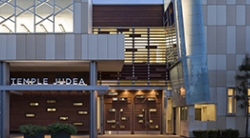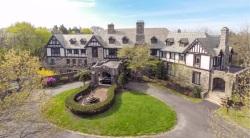
Gifted children are different. You may have noticed. They seem very smart and are quick to learn new ideas. They ask a lot of questions and don’t seem to be all that satisfied with the answers they get. So they ask more questions. They have this burning desire to learn.
In her book, Mindset: the New Psychology of Success, Carol S. Dweck, PhD, calls this a certain mindset to learn. What should be recognized and rewarded is effort, not results.
Gifted children are often impatient with vague or unsure responses. They don’t like gray areas. They want clarity. And they get frustrated without it.
Their problems increase when they get to school and join a culture of peers who are also there to learn. They find out that most of these other students are different than they are. And finding out how to deal with these differences is perhaps the most difficult thing they will have to learn at school.
You as a parent need to know how your child is different so that you can help him or her navigate the world of expectations, relationships, and obstacles to be overcome in the years ahead.
What are some of the characteristics your child may exhibit, and what are the experiences he or she may have going forward that you should be aware of that might affect emotional development?
Here are a few observations from research studies and from professionals in the field of working with gifted children. They may help guide you to a better understanding of the emotional burdens your gifted child will face in an “ungifted” society.
Growth Rates Are Uneven
Each child has his or her own rate of development, and this is especially notable for the gifted child because it may be very different from average children. This includes physical, intellectual, emotional, and social development. Each of these areas can significantly affect the others along the way.
Your child’s realization of being different and your own awareness of his giftedness are the first steps in making his/her life more understandable, comfortable and satisfying for both of you. Don’t be alarmed if he/she seems faster or slower in some area of development. Just know that he/she may be different but in a good way.
Development is asymmetrical. It can be ahead or behind peers in some form or other. And it should be noted that a very young gifted child can have an occasional meltdown just like any other child of the same age.
Shyness And Introversion Are Normal
The gifted child is very self-aware and has heightened sensitivity to him/herself and others. He/she can be very emotional. He/she tends to be an introvert and is shy. It would be good to provide social situations where it is encouraged to be self-expressive without peer pressure, as in family gatherings. And you can expect shyness in school other outside social gatherings. This is normal for the gifted child and no cause for alarm.
It might be a good idea to encourage extracurricular activities at school to facilitate more social interaction and mitigate shyness.
Students Can Doubt That They Are Gifted
Gifted students have to interact with parents, teachers, and especially peers. They feel tremendous pressure in different ways. Parents and teachers have expectations. Peers have jealousies and their own doubts about learning and self-image.
Gifted students can respond to these pressures in different ways. There is a burden associated with being called smart or gifted. They sometimes doubt that they are gifted at all. They think they have tricked everyone into thinking they were exceptionally smart. Or they think they were lucky instead of smart. Or they say the teacher liked them. This is called the “impostor syndrome” and leads to a fear of being found out and a fear of failure in future endeavors.
As a result, gifted children develop doubts about themselves and their abilities. They start to avoid situations where they might not be good. To avoid any risks, they often become underachievers.
Gifted Children Need Social Acceptance
We are all social beings. We need to relate to others. Even at a very young age, children want to play with other children, and gifted children expect others to have the same interests they do, but this is not always the case. They start to learn that they are different.
The gifted child learns that being perceived as smart can be a big disadvantage in school. He/she gets categorized as a “know-it-all” and sparks jealous reactions from peers or feelings that he/she is superior to them. The negative reaction is extremely stressful when peer acceptance is so important to social development.
Eventually, as the gifted child gets older, he/she learns to accept giftedness and channels knowledge by helping classmates and peers with their studies. This softens the perceived difference in social structure and helps with peer acceptance.
Gifted Children Need Intellectual Acceleration
One of the myths surrounding gifted children is that they should be with only students their own age. Parents fear association with older children. These fears included possible intimidation, exploitation or choosing the wrong role models.
There is a belief that spending time with same-age students will lead to enrichment, both emotionally and socially.
But what about intellectual challenge and acceleration? The gifted child needs this as well. There is no research evidence today that suggests interaction with older students leads to problems for gifted children.
The gifted child is defined as a divergent thinker. He/she cannot think or act differently. You can’t expect a horse to sit down and quack like a duck. If the gifted child is drawn to more intellectual stimulation from older children, it is a natural migration.
A Diversity Of Interests Can Create False Impressions
The gifted child seeks knowledge and can have interests in many fields and many subjects. He/she is constantly exploring and extending. This tendency to widen his sphere of learning leads to a time of chaos and disorganization. He/she can easily get frustrated by not having enough time or resources to fully explore all interests.
This chaotic period can be misunderstood as weakness and inability to focus. An interest in many subjects can also challenge teachers and parents who want to help prepare the child for college or for a career. But this diversity is an essential core characteristic of the gifted child. So no one should be surprised by it.
The Self-Expectations Are Very High
The gifted child sets very high expectations. He/she wants perfection and is self-driven and rarely satisfied with his/her own performance. He/she is also his/her own best critic and does not welcome the criticism of others including parents and teachers.
Rather than focus on the gifted child as being “smart,” it would be better to focus on performance. Acknowledge the positive behaviors of the gifted child more than the results. Too much criticism can lead to depression and lowering of self-worth.
Teachers Can Make Things Worse
Gifted students face social challenge from parents and teachers, too. Gifted children can be pushed to the point of self-doubt. The expectations of others add pressure to the already high expectations of the gifted child. The teacher in essence says, “Prove to me how gifted you are.”
Teachers like concrete examples, concrete thinking, black and white comparisons, multiple choice questions and answers. Gifted students often think in abstract terms and use intuitive thinking.
Gifted students like different learning environments. They like self-study and individual projects, and they like group projects. They think verbally, spatially, mathematically, musically, graphically, and tactilely among other ways.
Teachers should try to provide as many of these different learning opportunities and learning styles as possible to encourage full development of gifted intelligence.
Disabilities Require Special Considerations
Physical limitations can make life more difficult for gifted children, and the intellectual giftedness of the disabled should be acknowledged equally with non-challenged children.
Motor problems can mask high intellectual development. Gifted students can also have learning disabilities as well as physical. These children can be gifted in one area and challenged in others. They can be autistic or have cerebral palsy. They can be hearing or visually impaired.
These children tend to focus on their limitations rather than on their intellectual gifts. It is up to those who teach or parent or care for these children to accentuate their gifts and provide the special opportunities they need to grow those gifts.
What Parents Can Do
There are many things parents can do to support their gifted children, the challenges they face, and the opportunities they have to grow and excel. Here are just a few suggestions.
- Make the gifted child aware that they he or she is gifted and different
- Encourage educational flexibility
- Join a parent discussion group
- Allow relationships with older students
- Praise study ethic and the right effort
- Minimize criticism
- Encourage diversity of interests
- Understand introversion and shyness
- Recognize that disabilities and intellectual giftedness are independent of each other and require separate strategies.






